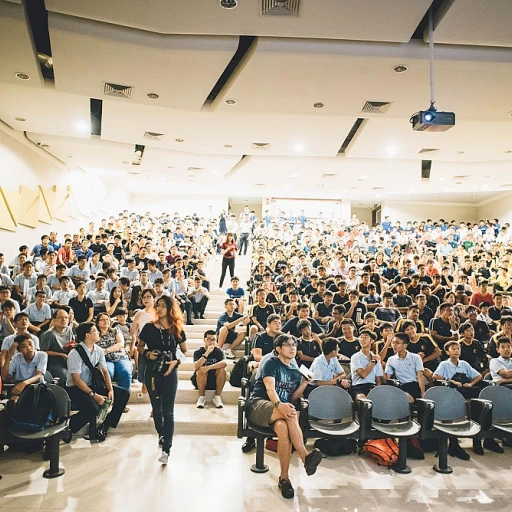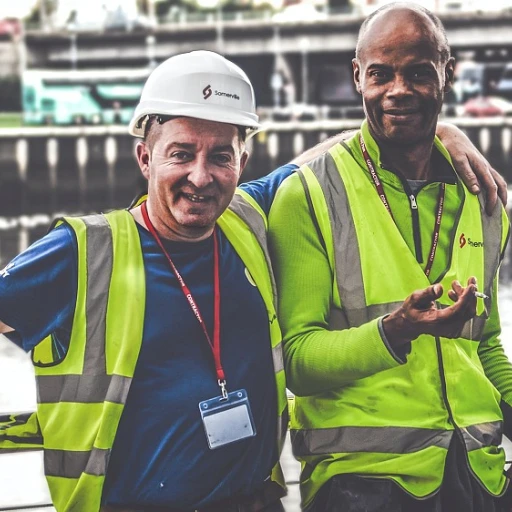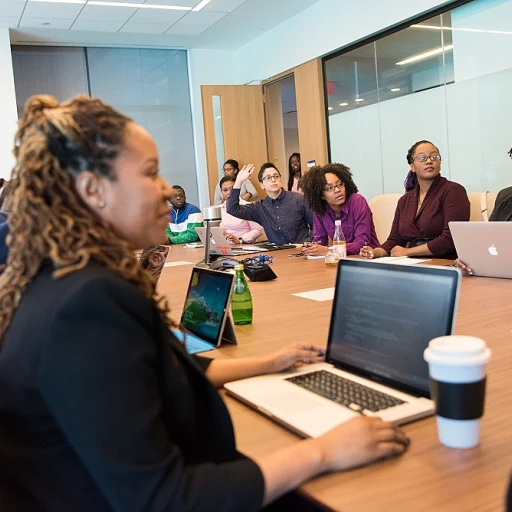
Understanding the Importance of Team Building in Residency
The Role of Team Building in Residency Programs
In the demanding world of medical residency, the importance of team building cannot be overstated. Residency programs, whether in internal medicine, family medicine, or emergency medicine, are intense environments where residents are expected to develop their skills rapidly while providing high-quality care. This pressure can often lead to burnout, making it crucial for program directors and faculty to prioritize activities that foster a sense of community and collaboration among residents.
Team building activities are essential in creating a supportive environment where residents can thrive. These activities help residents develop leadership skills, improve communication, and enhance decision-making abilities. By participating in team building, residents learn to work more effectively with their care team, which is vital for their future roles as chief residents or program directors.
Moreover, team building plays a significant role in promoting resident wellness. It provides a break from the rigorous demands of medical training and allows residents to connect with their peers on a personal level. This connection is vital for maintaining mental health and ensuring that residents can continue to provide excellent patient care.
As we explore the challenges faced by residents in achieving work-life balance, it becomes clear that team building is not just a luxury but a necessity. It helps create a cohesive team environment where residents feel supported and valued, ultimately leading to better outcomes for both the residents and the patients they serve.
Challenges Faced by Residents in Achieving Work-Life Balance
Striking a Balance Amidst Demanding Schedules
Achieving work-life balance is often challenging for residents due to the demanding nature of medical residency programs. Residents frequently face long hours, irregular shifts, and high-stress environments, which can lead to burnout and hinder their overall well-being. While residency is an essential period of growth and specialization in medicine, the mental and physical demands it imposes can have lasting effects on personal and professional life. The rigors of a residency program require residents to constantly juggle responsibilities, both within the hospital and outside. This can include patient care duties, attending educational seminars, honing clinical skills, and managing personal life commitments. As a result, many residents find themselves working extended hours that often encroach upon personal time, thus impacting their health and wellness. Medical students transitioning into residency face a steep learning curve. Suddenly, they are required to make critical decisions, often with a growing sense of responsibility toward their care team and patients. This increased responsibility can contribute to the complexity of achieving a balance. Program directors and chief residents play a pivotal role in creating a supportive environment that can alleviate some of these pressures. By fostering open communications and providing adequate resources, these leaders can help residents prioritize their wellness and facilitate a more manageable work-life integration. Moreover, engaging team building activities have been introduced to provide residents with opportunities to relieve stress, build camaraderie, and develop leadership skills. These activities not only help in strengthening team dynamics but also offer residents a respite from the demands of residency training. They act as a reminder that while medicine is critical, so is maintaining a healthy balance in life. Challenges in achieving work-life balance during residency are significant, but by promoting a culture of support and continuous improvement, residency programs can help alleviate these pressures, ultimately benefiting both residents and patient care.Popular Team Building Activities in Residency Programs
Exciting and Interactive Activities for Residents
In the dynamic realm of residency programs, team building activities have emerged as a crucial component to help residents thrive both professionally and personally. With the demanding schedules of medical education, integrating engaging activities into the program can enhance resident wellness and strengthen the care team.One prominent activity is the simulation-based training. Simulation exercises are vital in emergency medicine and internal medicine residency programs. Not only do they help residents sharpen their decision-making skills, but they also foster effective communication among team members. By placing participants in a controlled yet realistic environment, they can refine their clinical skills while developing trust within their team.
Workshops focusing on leadership skills are another popular choice. Through these programs, residents and chief residents alike can improve their leadership acumen, which is essential for those who will eventually assume decision-making roles in health care. Such workshops are typically organized by program directors, offering valuable insights into the qualities required for effective team leadership.
Retreats provide a more relaxed setting for team building, often outside the intense environment of a medical school or healthcare facility. These retreats can include activities such as outdoor team challenges and interactive discussions led by faculty members. Staff and faculty often play a significant role in organizing these retreats, ensuring that each activity aligns with the goals of the residency program and addresses residents' needs for balance and camaraderie.
Finally, scenario-based learning, such as mock code trainings and interdisciplinary ward rounds, can significantly enhance collaborative skills among residents. By participating in these activities, residents in various specialties like family medicine and internal medicine can better understand the dynamics of a collaborative health care environment. This understanding significantly contributes to their professional growth and the overall wellness of the residency program.
The effective integration of these activities into residency programs can not only enhance resident wellness but also improve the overall functioning of the care team, leading to superior outcomes in health care delivery. With consistent feedback from chief residents and program participants, these activities can be continuously refined to meet the evolving needs of the medical community.
Benefits of Team Building for Residents
Enhancing Resident Wellness through Team Building
Residents often face an intense and demanding schedule, which can lead to burnout. This makes team building crucial for maintaining mental and emotional wellness. Engaging in team activities offers residents a chance to unwind, connect with peers, and share common experiences, which contributes significantly to individual and collective well-being.Boosting Leadership Skills
Team building activities assist residents in refining essential leadership skills. As they transition from medical students to medical professionals, residents gain practical experience in leading groups and making decisions. By participating in various team exercises, they develop skills necessary for assuming roles like chief resident or program director in the future.Fostering Collaboration within the Medical Community
Effective health care relies heavily on collaboration among various members of the care team. Team building exercises simulate real medical situations where cooperation is key to patient outcomes. This allows residents to improve their ability to work with diverse team members, from fellow residents to faculty and department staff.Strengthening Communication and Problem-Solving Abilities
In a residency program, successful communication and problem-solving are indispensable. Team building activities provide residents with scenarios that require clear communication and collaborative problem-solving. By refining these skills, residents are better prepared to address complex situations, whether in internal medicine, family medicine, or emergency medicine.Creating a Supportive Community Environment
By participating in team building activities, residents contribute to a nurturing community within the residency program. A supportive network enhances resident wellness, serving as a reliable resource for advice, mentorship, and encouragement throughout the year. This sense of community promotes a balanced work-life experience and enhances the overall residency training environment.Implementing Team Building Activities: Best Practices
Strategies for Successful Implementation of Team Activities
Implementing team building activities in residency programs involves several crucial steps to ensure their effectiveness in improving the work-life balance and overall wellness of residents and faculty. While understanding the importance and the benefits is key, execution often demands careful planning and engagement from all stakeholders, including program directors, chief residents, and faculty members. Firstly, align the activities with the specific needs and challenges faced by the residents. Programs such as internal medicine or emergency medicine may have distinctive stressors and demands. Tailor activities that will resonate with the residents and help mitigate these unique pressures. Next, foster a collaborative approach in planning. Involve residents, particularly chief residents, in decision making to determine what types of activities would be most beneficial. Inclusion ensures that proposed activities cater to the residents' needs while promoting a sense of ownership and leadership skills among participants. Consider these best practices when planning and implementing team building initiatives:- Analyze Resident Schedules: Flexibility is essential. Activities should be scheduled considering the unpredictable nature of medical responsibilities in residency.
- Diverse Activity Options: Offer a range of activities that cater to different interests. From outdoor exercises promoting physical health and wellness to group discussions enhancing communication within the care team, a variety should be available.
- Leverage Existing Resources: Utilize available spaces and resources within the residency program. Department members or partnered organizations can provide support or sponsorship, reducing costs and logistical challenges.
- Ongoing Evaluation: Regular feedback from participants is crucial. This feedback will help refine activities, ensuring they remain relevant and impactful.
Feedback and Continuous Improvement
Gaining Insight Through Team Building Evaluation
Evaluating the success of team building activities requires gathering feedback from participants, including residents, faculty, and department leaders. Understanding their experiences can lead to meaningful improvements in residency programs. Key insights can help refine activities, meet the needs of diverse participants, and contribute to resident wellness.
Collecting Feedback for Improvement
It's vital to incorporate flexible methodologies when seeking feedback. Utilizing surveys, one-on-one interviews, and group discussions can ensure a diverse array of perspectives is considered. This inclusive approach helps identify which activities resonate best with residents across internal medicine, family medicine, and emergency medicine departments.
Assessing Impact on Resident Wellness
- Monitor changes in residents' stress levels and overall wellness following team building activities by using feedback and wellness assessments.
- Evaluate improvements in team dynamics and decision-making skills, particularly in high-stress fields like medicine residency.
Continuous Improvement Strategies
Program directors and chief residents should collaborate with program leadership to analyze evaluation data. This collaboration fosters informed decisions about future activities, addressing any challenges identified by residents. By doing so, programs can support an evolving culture where leadership skills and patient care are enhanced through targeted training.
Emphasizing Leadership and Interpersonal Skills Acquisition
Beyond refining activities for enjoyment, feedback is crucial in determining how team building impacts residents' educational goals and interpersonal skills. Such activities can cultivate a supportive environment where residents feel equipped to balance patient care responsibilities and personal life, resulting in improved health outcomes.













